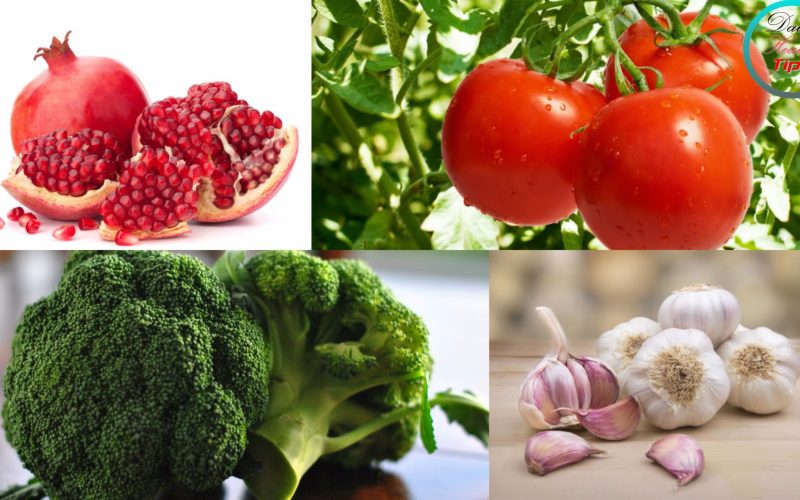Introduction
Food for Cancer treatment can take a toll on the body, both physically and emotionally. While medical interventions play a crucial role in fighting the disease, the significance of nutrition should not be underestimated. A well-balanced diet tailored to meet the specific needs of cancer patients can significantly contribute to their overall well-being and aid in the recovery process.
Nutritional Needs During Cancer
When battling cancer, the body’s nutritional needs undergo significant changes. The disease itself, along with treatments such as chemotherapy and radiation, can affect appetite, digestion, and the body’s ability to absorb nutrients. Therefore, it becomes imperative to pay close attention to one’s diet to ensure adequate nourishment.

Benefits of Good Nutrition
Proper nutrition is vital for cancer patients as it helps maintain strength, supports the immune system, and promotes healing. Good food choices can alleviate treatment side effects, enhance energy levels, and improve quality of life. By fueling the body with the right nutrients, individuals undergoing cancer treatment can better cope with the challenges they face.
Key Nutrients for Cancer Patients
Certain nutrients play a pivotal role in supporting the body’s fight against cancer. These include protein, carbohydrates, healthy fats, vitamins, and minerals. Protein, for instance, is essential for tissue repair and immune function, while antioxidants like vitamin C and selenium help combat oxidative stress and inflammation.
Foods to Include in a Cancer Care Diet
A cancer care diet should focus on incorporating nutrient-dense foods that provide essential vitamins, minerals, and antioxidants. Fresh fruits and vegetables, whole grains, lean proteins, and healthy fats should form the foundation of every meal. Additionally, staying hydrated is crucial, so drinking plenty of water and fluids is essential.
Hydration and Its Importance
Proper hydration is paramount for cancer patients, especially those undergoing treatment. Adequate fluid intake helps prevent dehydration, supports digestion, and flushes out toxins from the body. Patients should aim to drink at least eight glasses of water per day and consume hydrating foods like soups, broths, and fruits with high water content.

Meal Planning Tips for Cancer Patients
Planning and preparing meals can pose challenges for cancer patients, particularly when dealing with symptoms like nausea, taste changes, and fatigue. To make mealtime easier, it’s helpful to plan ahead, stock up on nutritious pantry staples, and opt for smaller, more frequent meals throughout the day. Additionally, involving family members or caregivers in meal preparation can provide much-needed support.
Eating Challenges During Treatment
Cancer treatment can bring about various eating challenges, including loss of appetite, taste alterations, and difficulty swallowing. To combat these issues, patients can try experimenting with different flavors and textures, eating cold or room temperature foods, and using herbs and spices to enhance taste. It’s also essential to communicate openly with healthcare providers about any eating difficulties experienced during treatment.
Recipes for Cancer Patients
Simple, nourishing recipes can make mealtime more enjoyable for cancer patients. Consider incorporating easy-to-digest foods like smoothies, soups, and mashed vegetables into the diet. Here’s a recipe for a nutrient-packed smoothie that’s gentle on the stomach:
Berry Blast Smoothie
Ingredients:
- 1 cup mixed berries (strawberries, blueberries, raspberries)
- 1 ripe banana
- 1/2 cup plain Greek yogurt
- 1 tablespoon honey
- 1/2 cup almond milk
- Ice cubes (optional)
Instructions:
- In a blender, combine the mixed berries, banana, Greek yogurt, honey, and almond milk.
- Blend until smooth and creamy.
- Add ice cubes if desired and blend again until well combined.
- Pour into a glass and enjoy immediately.

Eating Mindfully
Practicing mindful eating can help cancer patients savor their meals and improve digestion. Slow down, pay attention to hunger and fullness cues, and chew food thoroughly. Eating in a calm, relaxed environment can enhance the dining experience and promote better nutrient absorption.
Supportive Supplements
In addition to a well-balanced diet, some cancer patients may benefit from dietary supplements to address specific nutritional deficiencies. However, it’s essential to consult with a healthcare provider before starting any new supplements, as they can interact with medications and treatments.
Cancer-Fighting Foods
While no single food can prevent or cure cancer, certain foods are known for their cancer-fighting properties. Incorporating a variety of colorful fruits and vegetables, cruciferous vegetables like broccoli and kale, and omega-3 rich foods like salmon and flaxseeds can help support overall health and well-being. Explore More About (Music Impacts On Health)
The Role of Exercise
Regular physical activity is essential for cancer patients, as it can improve strength, stamina, and mood. Engaging in gentle exercises like walking, yoga, or tai chi can help alleviate fatigue, reduce stress, and promote a sense of well-being throughout treatment and recovery.
Emotional Well-being and Nutrition
The connection between emotional well-being and nutrition is undeniable. Eating well can boost mood, alleviate anxiety, and provide a sense of control during a challenging time. It’s essential for cancer patients to prioritize self-care, seek support from loved ones, and practice relaxation techniques to maintain overall emotional wellness.
| Aspect | Cancer Patient Diet | Regular Healthy Diet |
|---|---|---|
| Nutrient Density | Emphasizes nutrient-dense foods to meet specific nutritional needs during treatment. | Focuses on a balanced intake of nutrients for overall health and well-being. |
| Protein Intake | Often requires higher protein intake to support tissue repair and immune function. | Includes adequate but not necessarily elevated levels of protein for muscle repair and maintenance. |
| Caloric Needs | May vary based on individual factors and treatment side effects; may require adjustments to accommodate changes in appetite and energy levels. | Generally based on maintaining a healthy weight and meeting daily energy requirements. |
| Hydration | Emphasizes adequate hydration to prevent dehydration and support bodily functions, especially important during treatment. | Encourages regular hydration to support overall health and well-being. |
| Meal Planning | Involves planning meals that are easy to digest, accommodate taste changes, and address specific treatment side effects. | Focuses on variety, balance, and portion control, with an emphasis on whole foods. |
| Special Considerations | Takes into account specific dietary restrictions or recommendations based on individual health status and treatment protocols. | May include considerations for personal preferences, dietary restrictions, or health goals. |
| Supplementation | May include supplements to address nutrient deficiencies or support treatment side effects; should be discussed with healthcare providers. | May include supplements for overall health and well-being but typically not as medically necessary as for cancer patients. |
Conclusion
In conclusion, good food plays a crucial role in cancer care, helping patients feel better physically, emotionally, and mentally. By prioritizing nutrition, incorporating nourishing foods, and practicing mindful eating, individuals undergoing cancer treatment can support their overall health and well-being. Remember to consult with healthcare providers for personalized dietary recommendations and guidance throughout the journey.










